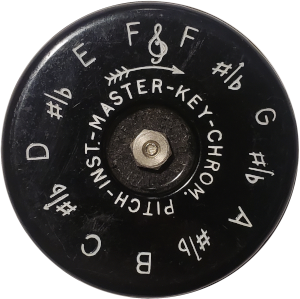From this news update:
One of the unexpected joys of working as a freelance composer/music director for the Theater Arts Department at UC Santa Cruz was discovering that I really enjoy teaching people music. Whether it's working to improve the performances of solo singers, cast ensembles, instrumentalists, or trying to covertly sow seeds of music theory/ear training during rehearsals, I find it deeply satisfying to think that people's understanding of music and performance could be developed and expanded by me helping them. My dear friend and co-collaborator Kimberly Jannarone (Theater professor, author, director, birder) once said I was "a natural" at teaching, which I'm smugly including in this intro paragraph to persuade you to hire me to give you lessons.
Several months after working on the brilliant romp that was Dannie Scheie's production of Aristophanes' The Congressladies, a crew member (sound designer) contacted me to see if I'd be willing to give him lessons on piano, reading music and composition. He wants to learn music to in turn improve his abilities as a sound designer and audio engineer. We've been at it for a little while and I'm loving it. It later dawned on me - if I could do this all of the time, I could uncomfortably straddle the poverty line for the rest of my life whilst pursuing my art!
My approach to teaching music is best summed up by these three main points, the first of which is really several points but it ballooned grotesquely into a quasi self-aggrandizing god damned "Top reasons why..." blog post:
1. You don't take lessons from me to learn how to only play an instrument. You take lessons from me that are musically-comprehensive and will forever change your musical life. Some things I wrote with bullets regarding what lessons will contain or things I can help you with:
Ear training and music theory: Ear training is the most important skill you can take away from a musical education. I personally don't understand why K-12 music theory isn't more widely prioritized. Well, I mean I do - American capitalism, politics, and marching band is probably to blame. But that's not the point. When you can begin to intellectually and cognitively listen for, identify, shape, represent, and articulate musical events in your mind, it completely transforms your artistic world. What was once a vague intuition becomes an informed experience that is fluent and expressive.
Performance and practice. Both are of critical importance and a huge part of your musical development. All of the real work happens when we don't see each other. If you're an adult and have little-to-no musical experience, bad news: you're going to have to make time to practice and the results will probably not come as fast as you'd like. Be patient, but be persistent, as they say. Deliberate, repeated effort becomes automatic.
How to deal with your stupid mind/body when it gets in the way. Struggling with stage fright, anxiety, procrastination, and self-doubt? Welcome to being human! I'm understanding and attuned to these types of difficulties because I've dealt with them in the past and even still today. I am the self-professed private music teacher for cowards. I don't judge, I just truly want to see you improve.
You will listen to, play, and study different styles of music. Bach is important, you will learn some of his music and I'm nearly certain I can help you fall in love with his compositions. But you will also learn other styles, some you might not have thought would be relevant or of educational value. Last week, a listening exercise I gave included pieces of music from Pedro The Lion (late 90's indie rock), Mulatu Astatke (Ethio-Soul Jazz), James Carr (Deep Southern Soul) and Glover Gill (Post-Piazzolla Tango Nuevo). All music has has educational value and I try to teach beyond the first-order reactions and assumptions that lead some people to make sweeping judgments like "I like everything but rap and country".
Historical/Social/Cultural context and significance: I'm not a musicologist, nor am I a cultural anthropologist or historian, but I love to pretend I am at people. You simply can't escape the context of music throughout human history. Context is key. These will definitely come up and only deepen your connection to what you're playing. Or at least give you interesting things to say at parties.
2. Timed 30-minute and 60-minute lessons are an arbitrary, anxiety-inducing and ineffective way to get things done. If I'm paying for a 60-minute lesson in anything, I want to walk away feeling enriched, challenged, and very slightly overwhelmed (in a motivated way). As it should; music and its pursuit is more important than your life or mine and is an unending, ever-unfolding masterpiece that starts when you're born and ends (in the personal sense, at least) when you die. Lessons last however long they should last to ensure one is immersed in the material and absorbing its core concepts. Lately, "60-minute" lessons have been lasting 90-120 minutes. So you get MAXX VALUE by being my student.
3. I'm not one of those guitar shop music teachers who market their service by saying things like "I teach ALL styles", "play what YOU wanna play", "make music FUN!" or "how to UNLOCK THE FRETBOARD". Nor will I rigidly adhere to a formalized pedagogy that excludes entire continents of music. We will work with each other and apart from each other, from lesson to lesson, having fun and staying engaged and motivated along the way. Like most good things, it takes time, work, and focus.
So here's the deal: $Sliding Scale/"hour"for individualized but comprehensive musical training, with primary instrument instruction in: guitar, piano, voice, violin/viola, composition, theory or audio engineering. Call or email if you have that info, otherwise, go to the contact link and fill out the form.
XOXO,
Eric

